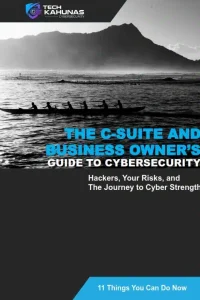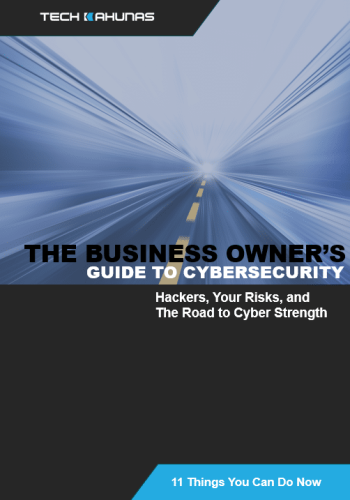In recent years, the landscape of work has undergone a significant transformation, with remote and hybrid work arrangements becoming increasingly prevalent. While these flexible models offer numerous benefits, they also bring about new challenges, particularly in the realm of cybersecurity. As a small-to-medium business or organization owner, it’s crucial to recognize the heightened risks associated with remote work and take proactive measures to bolster data protection efforts.
The Growing Threat Landscape
The shift to remote work has undeniably expanded the attack surface for cybercriminals. With employees accessing company systems and data from various locations and devices, the likelihood that you will encounter a data breach increases substantially. Your team of cybersecurity professionals must remain vigilant in identifying and mitigating potential vulnerabilities to safeguard sensitive information from unauthorized access or exploitation.
Strengthening Defenses with Additional Measures
To mitigate the risks associated with remote work, organizations must implement additional layers of security. Virtual Private Networks (VPNs) encrypt data transmitted between remote devices and corporate networks, safeguarding it from interception by malicious actors. Anti-malware software is also essential for detecting and neutralizing malicious threats that may infiltrate remote systems.
The Impact of the COVID-19 Pandemic
The onset of the COVID-19 pandemic accelerated the adoption of remote work, particularly among small businesses striving to adapt to rapidly changing circumstances. However, this abrupt transition introduced a host of cybersecurity challenges, as many organizations were unprepared for the security implications of remote work. Small-to-medium business owners must remain agile in addressing these challenges and implementing robust security measures to protect remote workers and company assets.
Vulnerabilities of Remote Workers
Remote workers often operate within less secure network environments compared to their counterparts in traditional office settings. Home networks may lack robust security measures, making them more susceptible to cyberattacks. Additionally, personal devices used for remote work may not adhere to the same security standards as corporate-issued devices, further increasing the risk of compromise.
Ensuring Adequate Security Measures for Small Businesses
Small-to-medium businesses must prioritize the implementation of comprehensive security measures to safeguard their remote workforce. Multi-factor authentication adds an extra layer of protection by requiring additional verification beyond passwords, reducing the risk of unauthorized access to company systems. Secure VPNs establish encrypted connections, enabling remote workers to access corporate resources securely from any location. Automated patching mechanisms ensure that devices remain up to date with the latest security fixes, minimizing the risk of exploitation by known vulnerabilities.
Conclusion
As remote work continues to become the new normal, your cybersecurity professionals play a pivotal role in safeguarding organizational assets and data from evolving threats. By acknowledging the unique challenges posed by remote work and implementing robust security measures such as VPNs, anti-malware software, multi-factor authentication, and automated patching, small-to-medium businesses can enhance their resilience against cyber threats and foster a secure remote work environment for their employees.
Together, Tech Kahunas and your organization can navigate the complexities of remote work while safeguarding the integrity and confidentiality of sensitive information.



 Get your CPA firm aquainted with new FTC rules.
Get your CPA firm aquainted with new FTC rules. 




